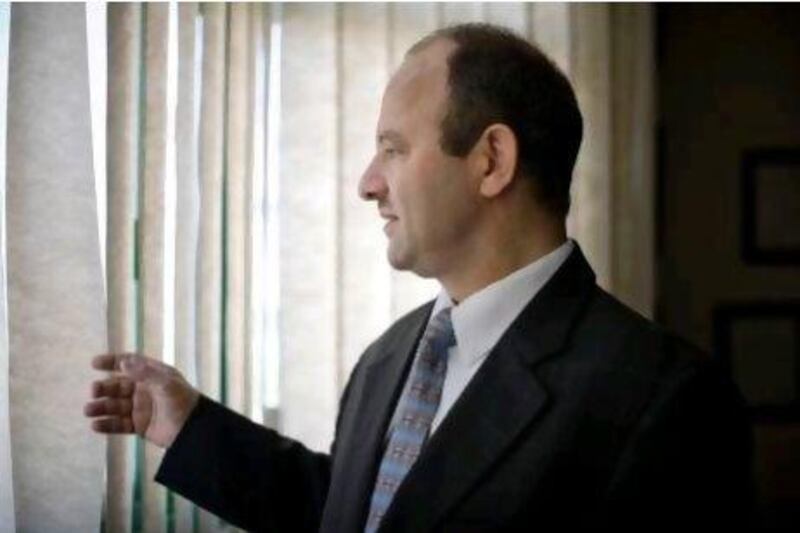ABU DHABI // A lack of knowledge about eating disorders has caused many to forgo treatment in the UAE, experts warned yesterday.
Of particular concern is the level of education among health professionals, said Dr Yousef Abou Allaban, medical director of the American Centre for Psychiatry and Neurology.
"It's not only the awareness in the public but also in the medical community and that is actually where the tragedy is," he said. "No one knows when to refer the patient. This is the dilemma we face."
Describing anorexia nervosa, a condition where a patient drastically reduces food intake, as "the deadliest mental illness", experts said the whole community must be able to identify the signs.
These include sudden and dramatic weight loss, avoiding food, deep concerns about body appearance and fine, downy hair appearing on various parts of the body as it tries to maintain its temperature.
"Doctors must monitor their patients' growth curves and if they see anything unusual they must review the eating habits," said Dr Veena Luthra, a consultant psychiatrist and head of the centre's eating disorder programme, which launched this week. "The minute they suspect an eating disorder they should make a referral."
Clear signs of bulimia - when a patient purges after eating - are tooth decay and erosion, which affect 89 per cent of bulimics and show as early as six months after the behaviour begins.
The medical dangers of eating disorders include a low, irregular heartbeat, severe anaemia, osteoporosis, excessive water retention and the cessation of a menstrual cycle.
The centre plans to hold a continuing medical education conference in December to educate doctors about the signs and symptoms.
It will also hold monthly workshops at schools and provide staff with kits to screen children.
The Eating Attitudes Test and the Children's Eating Attitude Test are being translated into Arabic with the authors' permission.
Although there is no hard data for eating disorders, experts expect the prevalence is comparable with rates in the West. An emphasis on glamour and perfection in the UAE adds to the risk of developing an illness.
"I would not say it exceeds the US but I would liken Dubai to California, where it is hot, people wear skimpier clothing and there is more pressure on body image," said Dr Saliha Afridi of Lighthouse Arabia.
According to the Cleveland Clinic, up to four per cent of adolescents and young adults in the US have an eating disorder. The National Institute of Mental Health says about 0.6 per cent of the adult population in the US will suffer from anorexia, 1 per cent from bulimia and 2.8 per cent from a binge-eating disorder.
Dina Zalami, a clinical therapist at LifeWorks Counselling Dubai, said a culture that emphasises perfection puts more pressure on those already predisposed to the ailments.
"It is all about having the best and being the best," Dr Zalami said. "This tendency and notion makes women in Dubai more susceptible to developing this disorder. Many people see [the disorders] as a coping mechanism, a way to stay in control."
Not everyone is susceptible. Anorexia and bulimia, for example, are more common among the middle and upper class.
"There are pockets within Dubai, I would say the affluent or the upper class, that are open to this," Dr Afridi said. "It is very much in their media and culture."
Experts say the most common disorders in the UAE are bulimia and binge eating, which is often coupled with purging. The latter is difficult to spot because those who binge and purge are often of an average weight or overweight, said Dr Karine Yazbek, of Lighthouse Arabia.
Binge eating differs from other addictions because patients must find a balance. "Unlike addictions to drugs or alcohol, which you don't need to survive, food is completely different," Dr Yazbek said. "It's about establishing a normal relationship and this takes a lot of time."
Another eating disorder in the UAE is diabulimia, where diabetics manipulate their insulin levels to lose weight, said Dr Luthra. She said it was imperative that diabetes centres screened for these patients.
"Their blood sugar will suddenly shoot down in an effort to lose weight. It's extremely dangerous," she said. "They are playing medical Russian roulette with their lives."
The role eating plays is the overarching problem, Dr Afridi said.
"For many, food equals love, friendship and happiness," she said. "But it shouldn't mean those things. The purpose of food is nourishment."





